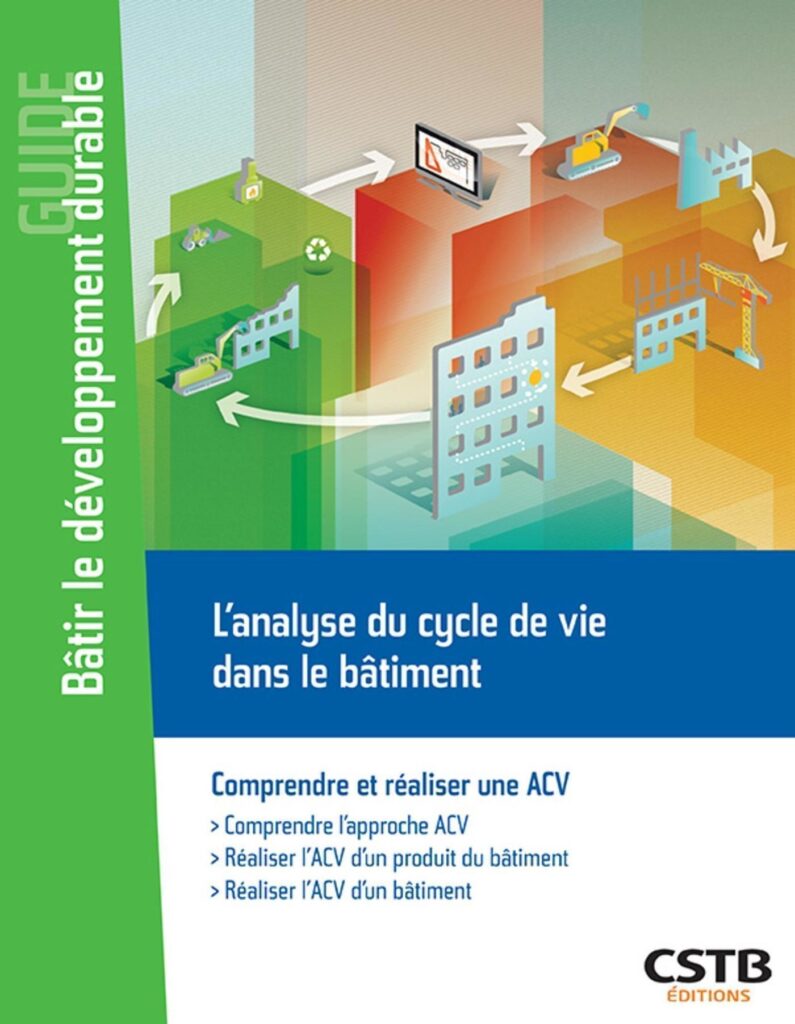Life Cycle Assessment (LCA) Methodology
The Life Cycle Assessment (LCA) is an environmental evaluation method for products or services. It involves analyzing the environmental impacts associated with all stages of a product’s life, from raw material extraction to disposal, including production, distribution, and use.
The LCA methodology is based on four main steps:
- Definition of goals and scope: This step involves determining the study’s objectives, system boundaries, functional units, and evaluation criteria.
- Life Cycle Inventory: Collecting data on incoming flows (raw materials, energy, etc.) and outgoing flows (emissions, waste, etc.) for each stage of the life cycle.
- Impact Assessment: Analyzing inventory data to evaluate potential environmental effects, such as climate change, resource depletion, human health impacts, etc.
- Interpretation of results: Identifying critical points, formulating recommendations, and reviewing uncertainties to improve the environmental performance of the product or service.
This approach allows informed decisions to reduce ecological footprints. It is essential for companies seeking to adopt sustainable practices and for environmentally-conscious consumers.
Initiatives for sustainable development greatly benefit from a life cycle assessment, as it provides an overview of environmental impacts, helps identify areas for improvement, and encourages innovation towards more environmentally-friendly practices.
The LCA is a key tool for promoting transparency and accountability regarding environmental impact throughout the life cycle of products.
Definition of LCA
The Life Cycle Assessment (LCA) is a systematic approach to evaluating the environmental impacts of a product, service, or process throughout its life cycle. From raw materials to end-of-life, the LCA considers several stages to provide a comprehensive view of ecological impacts.
The LCA follows a structured methodology to analyze the different phases of a product’s life. Here are the main steps:
- Definition of the objective and scope: this involves determining the study’s objective and defining its boundaries.
- Life Cycle Inventory (LCI): this phase consists of collecting data on material and energy flows used in each stage of the life cycle.
- Impact Assessment: analyzing inventory data to determine environmental impacts, such as greenhouse gas emissions, water use, and resource consumption.
- Interpretation: the results are interpreted based on the objectives defined to provide recommendations.
The definition of LCA relies on a comprehensive evaluation of the environmental impacts of a product. This tool allows comparison of different options and informed decision-making to reduce ecological footprints. By analyzing the processes of production, use, and final disposal, the LCA helps identify the most critical stages and propose solutions for improvement.
Issues of LCA
The concept of Life Cycle Assessment (LCA) is essential for anyone wishing to evaluate the environmental impact of products or services. The LCA allows quantifying the environmental impacts of each stage of a product’s life, from raw material extraction to end-of-life treatment.
The LCA methodology proceeds through four distinct phases that allow for a comprehensive and detailed evaluation:
- Definition of goals and scope: this initial phase clarifies the reasons for the study and specifies the system’s boundaries.
- Analysis of Life Cycle Inventory (LCI): collecting and quantifying the incoming and outgoing flows (materials, energy, waste) from the studied system.
- Life Cycle Impact Assessment (LCIA): transforming inventory data into potential environmental impacts (CO2 emissions, resource depletion, etc.).
- Interpretation: analyzing the results obtained to formulate recommendations and guide actions to be taken.
Each phase is interdependent and requires accurate data to ensure a credible and efficient assessment.
The issues of LCA are multiple and crucial in our quest for sustainability:
- Reduction of carbon footprint: by identifying the energy-intensive production stages, it becomes possible to develop strategies to reduce greenhouse gas emissions.
- Resource optimization: a thorough analysis can promote the use of recyclable materials and reduce reliance on non-renewable resources.
- Promotion of a circular economy: the LCA can highlight the benefits of recycling and reusing materials, thus supporting more sustainable economic models.
- Continuous improvement: LCA encourages companies to continuously review their processes to minimize environmental impact.
The LCA offers a comprehensive and rigorous perspective that is essential for the development of genuinely environmentally-friendly products and services.
“`
Articles similaires
Thank you!
We will contact you soon.













